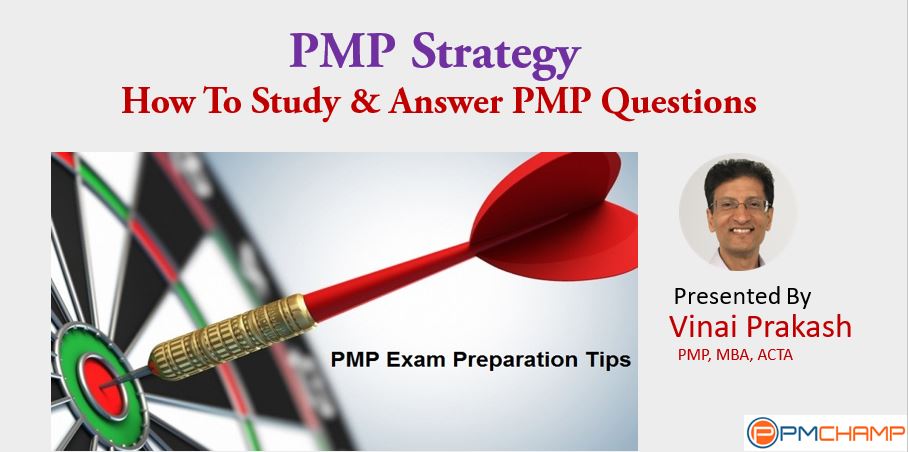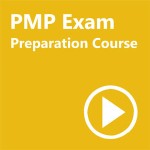 The PMP exam is based on the PMBOK Guide, which is a very holistic framework for managing projects. For most project managers, it is an eye opening experience. Most people find that there are huge gaps in what they know and practice on real projects, versus what learn from the PMBOK Guide. This leads to confusion, conflict, and causes the participants to ditch the program, as they find it hard to apply it to every situation.
The PMP exam is based on the PMBOK Guide, which is a very holistic framework for managing projects. For most project managers, it is an eye opening experience. Most people find that there are huge gaps in what they know and practice on real projects, versus what learn from the PMBOK Guide. This leads to confusion, conflict, and causes the participants to ditch the program, as they find it hard to apply it to every situation.
Paradigm Shift – Answering from PMI’s Perspective
This is also the major reason people get the answers wrong at the PMP exam. Most people answer the exam questions from their own perspective, from their experience, of what they think best. They do not answer the questions from PMI’s perspective – of choosing from the best practice, and not from their current practice. Check out some tips on how to answer situational PMP questions, How to Choose the Right Answer for PMP questions.
One of the major paradigm shift in the mind of the project manager is to understand the PMBOK Guide is the highest standard – the best practice for managing projects. Not all companies, countries, and project managers are operating from this level yet. But to know the highest standard is an eye opener already. Then you must use this high standard, the best practice to answer questions on the PMP exam.
Methodical Study Plan
Preparing for the PMP exam requires a methodical plan, which must be followed with dedication. There is a huge amount of information that must be processed, understood, and applied on the exam questions. People who do not spend time doing Risk Management, Risk Assessment, Quality Planning, Quality Control, Network diagrams, Cost Control, Stakeholder Management Strategy etc. often suffer, as they do not have any experience to bank upon.
A total of 10 knowledge areas, 5 process groups, and 47 unique processes need to be understood. There are inputs, tools and techniques, and outputs to understand, and learn how outputs of one process become the inputs to the next process. There are several concepts that you must master – project selection methods, formal change control procedures, conflict resolution procedures, HR motivational theories, Cost control formulas, stakeholder management, Quality control tools, Six sigma values, just to name a few…
So to prepare for the PMP exam, you need a step-by-step, methodical study plan that will make sure you set aside at least a short amount of time each day to study for the PMP exam, and cover the entire material in smaller, byte sized segments. Most concepts are quite heavy & dry, and require a lot of effort from the participant to understand, and apply to the exam. Refer to the PMCHAMP study plan here.
Refresher PMP Training
 Even if you have received your 35 PDU certificate from a class room training, you still need to review the material again, as intensive classroom sessions may be too tough and short to retain everything. It is better to join an Online PMP coaching program where the coaching can be done by videos, and you can watch any video anytime, any number of times, to understand each concept thoroughly.
Even if you have received your 35 PDU certificate from a class room training, you still need to review the material again, as intensive classroom sessions may be too tough and short to retain everything. It is better to join an Online PMP coaching program where the coaching can be done by videos, and you can watch any video anytime, any number of times, to understand each concept thoroughly.
Broad knowledge of Project Management
You must read the PMBOK Guide, and other PMP Exam Books. For some good PMP book recommendations, and review of PMP Exam Books, check our PMCHAMP Resources section. You must also read generally on People Management, and read and understand Human Psychology. Today there are abundant articles available on Wikipedia, and on YouTube where you can learn about Motivational theories, Conflict Resolution techniques, Communication Methods, and this will help you with practical tips for real life, and broaden your knowledge for the PMP exam.
Conclusion
If you have a broad knowledge of Project management, study the holistic PMBOK Guide, and other PMP exam prep books and wikipedia, and work on your weak areas, have a Study Plan, and follow it religiously to update your knowledge, and build on your experience, you will be able to clear the PMP exam, and earn the PMP credential for yourself.
Author: This article is written by Vinai Prakash, founder of PMCHAMP.com and an passionate PMP exam trainer. If you would like to train with Vinai, do let us know at +65-9877-3485 or email to vinai@pmchamp.com.

Awesome tips for PMP questions. Most PMP aspirants failed to achieve their certification because they get confusion with PMP guide concepts and real time project management concepts. PMP certification depends on PMBOK guide concepts so PMP candidate should follow PMBOK guide concept to clear PMP exam.